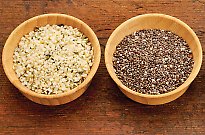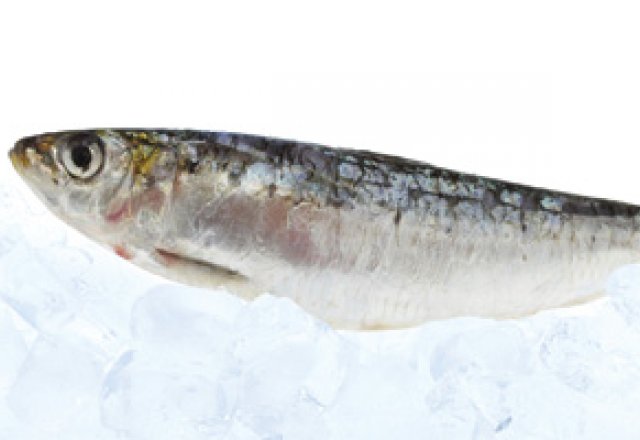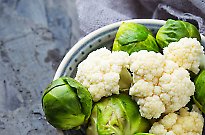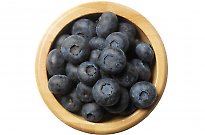
Omega-3 - the essential guide

Despite what avid dieters would have you believe, fat is not the enemy.
In fact, you ought to make good friends with the greatest fat of them all – omega-3.
The value of omega-3 fatty acids in good health has been known for decades, with awareness surging in the 1970s when it was discovered through the study of Inuits in Greenland that those who consume large amounts of seafood display virtually no signs of cardiovascular disease.
In the years since, evidence has emerged about omega-3’s potential health benefits for arthritic and other inflammatory conditions, and in relieving the symptoms of some mental health conditions such as depression.
Annoyingly, we can’t make these essential fatty acids ourselves to reduce the risk of chronic illnesses. So, we must rely on a diet rich in the miracle lipids.
To help you gain optimum health, we’ve navigated the ocean of omega-3 and fished out all the information you need to know about what the best sources are and how much you really need.
Where do I find Omega-3?
Omega-3 oils are a type of polyunsaturated fat that can be found in marine, animal and plant sources.
- Marine sources of omega-3
Docosahexaeonic acid (DHA) and eicosapentaenoic acid (EPA) are found in oily fish like salmon, blue eye, trevalla, blue mackerel, sardines and tuna – all generally found in colder water.
- Animal sources of omega-3
Docosapentaenoic acid (DPA) and smaller amounts of EPA and DHA can be found in animal sources such as free-range eggs, chicken and beef.
- Plant sources of omega-3
Alpha-linolenic acid (ALA) is found in canola and soybean oil, chia, flaxseeds and walnuts.
- Supplements and omega-3 enriched foods
Omega-3 supplements usually contain fish oils. However, vegetarian and vegan options with omega-3 sourced from microalgae are available. Some foods and drinks can be enriched with omega-3 and these tend to have a marine source.
Which type should I have for optimal health?
Extensive review of scientific evidence, conducted by the Heart Foundation, found that marine-based omega-3 is the best for improving cardiovascular health. Fish is also a great source of protein, low in saturated fats and a good source of vitamins and minerals such as vitamin D and iodine. Vitamin D is important in the absorption of calcium and in the prevention of osteoporosis, while iodine is important for essential hormone and healthy brain development.
Recommended Daily Intake (RDI)
The Heart Foundation recommend that Australian adults consume around 500 milligrams of marine-based omega-3 per day and suggest you achieve this with two-three 150 gram serves of oily fish per week and supplement your intake with fish oil capsules or enriched foods and drinks.
In addition, the Heart Foundation recommends that all Australians consume at least two grams of plant-based omega-3 every day. Two slices of soy and linseed bread with canola based margarine or 30 grams of walnuts should satisfy your daily quota.
What if I don’t
eat seafood?
With a little thought, it is possible to reach your weekly omega-3 intake without eating seafood. Choose food with added omega-3. This should be indicated on the front of the packet. Some of the many omega-3-enriched foods include yoghurts, eggs, bread and soy drinks.
Up your intake of nuts and seeds, hemp oil, soybeans, canola oil and margarine and find yourself a plant-based capsule at the health food store or pharmacy. Also, add to your diet a dose of a good quality green drink with microalgae such as chlorella or spirulina.
Browse more nutrition advice or share your views on our Facebook page!


